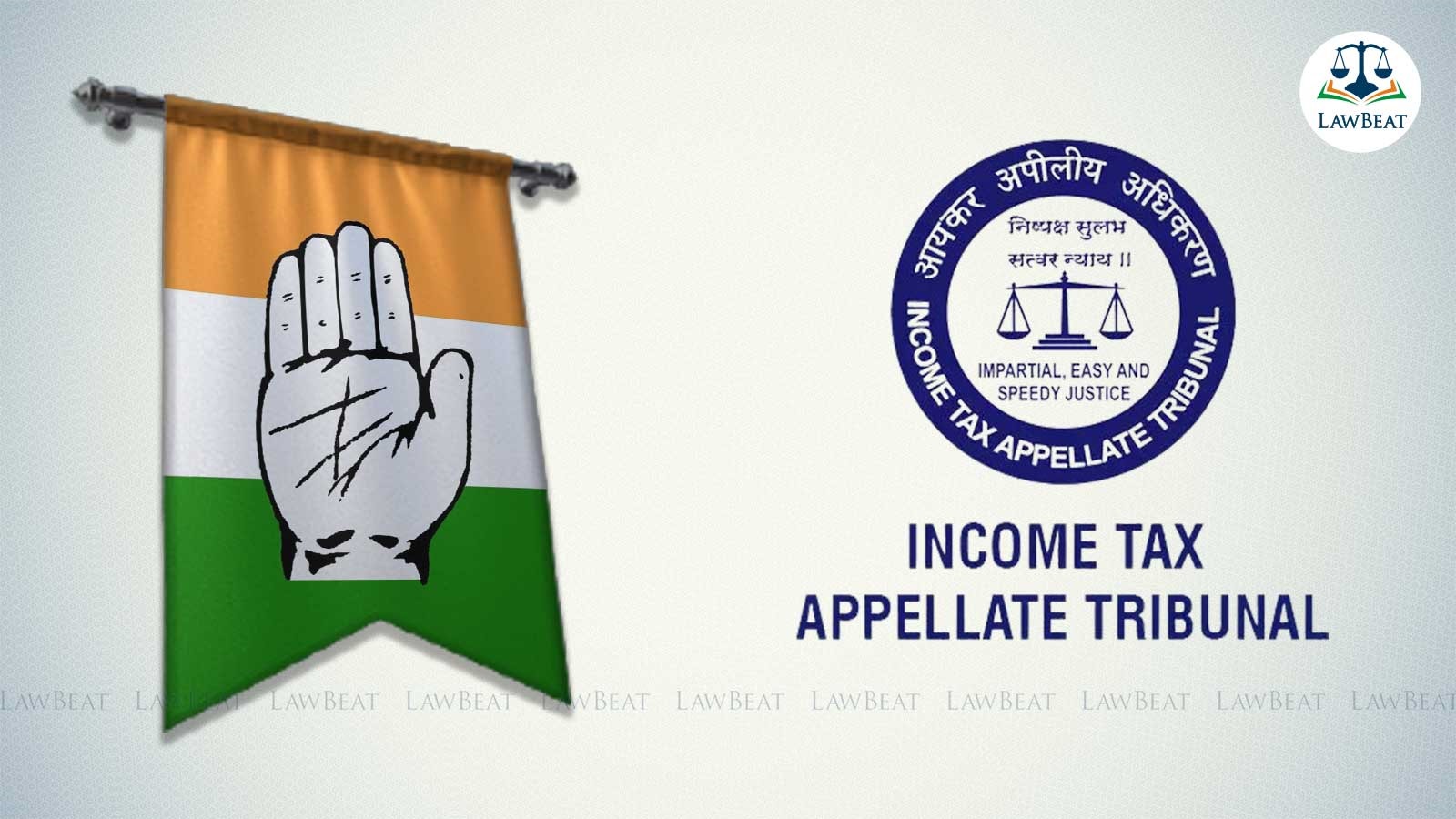Income Tax Appellate Tribunal Dismisses Stay Application Of Indian National Congress

The Tribunal found that the distinction made by the Indian National Congress between 'voluntary contributions' and 'donations' lacked supporting evidence, resulting in a violation of clause (d) of the first Proviso to Section 13A
The Income Tax Appellate Tribunal (Tribunal) comprising Vice President G.S. Pannu and Judicial Member Anubhav Sharma dismissed the application submitted by the Indian National Congress seeking a stay on the recovery of a disputed demand for the Assessment year 2018-19, under Rule 35A of the Income-tax (Appellate Tribunal) Rules, 1963 (ITAT Rules).
The demand, amounting to Rs.105,17,29,635, arose due to the denial of exemption under Section 13A of the Income-tax Act, 1961. The Tribunal's decision was based on two primary grounds: first, the alleged violation of the time limit specified in the third Proviso to Section 13A, and second, the receipt of cash donations exceeding Rs.2,000 each, which violated clause (d) of the first Proviso to Section 13A.
Regarding the interpretation of Section 13A and Section 139 of the Act, Senior Advocate Vivek Krishna Tankha representing the political party argued that the return was filed within the time allowed under Section 139(4), while Senior Standing Counsel Zoheb Hossain appearing for the Revenue Department emphasized the literal interpretation of the third Proviso to Section 13A, which mandates compliance with the due date specified in Section 139(1).
The Tribunal noted that the case pertained to whether the conditions for exemption under Section 13A were met, specifically concerning the timeliness of the income tax return filing and the nature of the received sums.
The Tribunal underscored that it had the authority to grant stays, considering factors like the merits of the application, balance of convenience, and irreparable loss.
The dispute primarily revolved around the denial of exemption under Section 13A of the Income Tax Act, related to the income of political parties. This provision sets conditions for Political Parties to exclude certain incomes from their total income.
The Tribunal observed, “As Section 13A of the Act stands for the year under consideration, it prescribes that for a political party to be eligible for exemption, the following are to be complied with:
(i) that such Political Party must keep and maintain such books of account and other documents as would enable the Assessing Officer to properly deduce its income therefrom;
(ii) that in respect of each such voluntary contribution other than by way of electrical bond in excess of Rs.20,000/-, such Political Party keeps and maintains a record of such contribution and the name and address of the person who has made such contribution;
(iii) that the accounts of such Political Party are audited by the Accountant as defined in Explanation below Section 288(2) of the Act;
(iv) that it ought not to accept Donations exceeding Rs.2,000/- otherwise than by an account payee cheque or an account payee bank draft or by use of electronic clearing system through a bank or through electoral bond;
(v) that the Treasurer of such Political Party or any other person authorized in this behalf shall submit the report under Section 29C(3) of The Representation of the People Act, 1951; and,
(vi) that such Political Party furnishes a Return of income for the relevant year in accordance with the provisions of Section 139(4B) of the Act on or before the due date under that Section”.
The Tribunal further noted that Section 13A of the Act lays down conditions that must be fulfilled by a political party to claim exemption, however, compliance with these conditions is mandatory. One such condition, the third Proviso to Section 13A, requires the political party to file its return of income by a specified due date. In this case, the return was filed after the due date, leading to an apparent non-compliance with this requirement. However, the provision allows for belated filing of returns before the end of the assessment year or completion of assessment, whichever is earlier. The interpretation hinges on whether filing within the extended time frame under sub-section (4) of Section 139 suffices for compliance with the third Proviso to Section 13A.
Additionally, the Tribunal noted that the insertion of the third Proviso in Section 13A by the Finance Act, 2017 made it mandatory for political parties to file their income tax return by the due date under Section 139 to claim exemption. This Proviso was introduced to ensure timely filing of returns as a condition for exemption. The argument that Section 139(4B) would encompass sub-section (4) and permit belated filing of returns is flawed, as it contradicts the purpose of the Proviso, the Tribunal held. The due date under Section 139 is defined by Explanation 2 and is not controlled by sub-section (4), it added.
Additionally, the Tribunal highlighted the language difference between the third Proviso in Section 13A and clause (ba) in Section 12A(1), noting that political parties are required to file returns by the due date under Section 139, making the condition in Section 13A more stringent.
Regarding the second reason for the denial of exemption, the Tribunal found that the distinction made by the Indian National Congress between 'voluntary contributions' and 'donations' lacked supporting evidence, resulting in a violation of clause (d) of the first Proviso to Section 13A.
Consequently, the Tribunal held that the denial of exemption under Section 13A due to violations of the first and third Provisos was justified. The Tribunal also found no basis to intervene in the recovery notice issued by the Assessing Officer, dismissing the Indian National Congress's stay application.
Case Title: Indian National Congress v Deputy Commissioner of Income Tax
